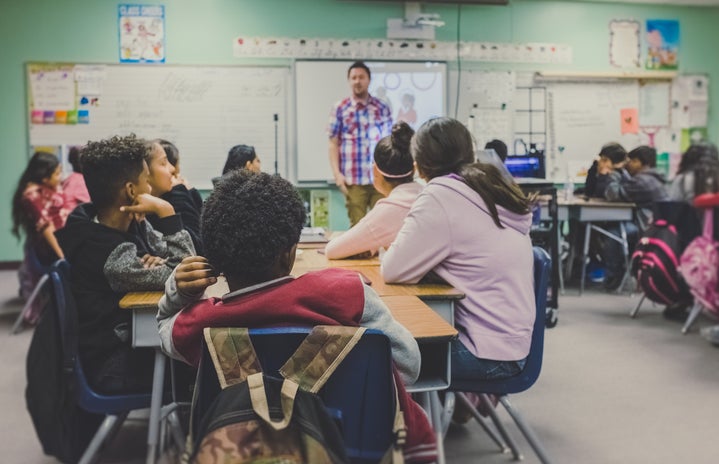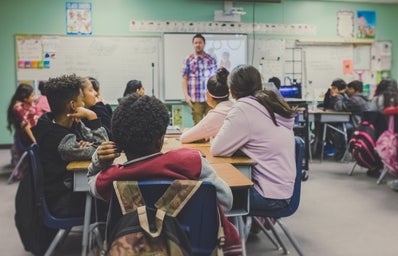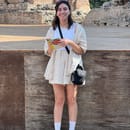It was always awkward to explain to my teachers why I would be missing school for a few days for the Muslim celebratory holiday of Eid. It was never a conversation, until I, the only Muslim in my school, brought it up. Then, I had to explain to my teachers and equivocate it so they may understand, “It’s like Christmas”, I would say, “Christmas for Muslims.”
This is just one of the many issues that came along with being in a predominantly white non-muslim school as a mixed-raced Muslim girl, having to teach not only my peers but my teachers as well. It was as if I had become the voice for all Muslims, and I had to take time and energy to explain what it meant to be a Muslim in today’s society.
I want to preface this by saying that I was in no way equipped to speak for all Muslims as a 15-year-old who was still trying to figure myself out and where my faith fit into my life. And I am not going to use this article as a chance to try to sum up the whole Muslim or minority experience. Instead, I would like to discuss the issues with the lack of teaching on Islam as a religion and the Muslim experience in schools.
The first-ever time I can recall fully explaining to my teacher what it meant to be a Muslim was when I requested an extension on an assignment because the deadline fell on Eid. My teachers argued that education and religion are and should be separate. But this is obviously not the case: Christmas Break still exists and likely will remain. People sometimes do not stop to consider the impact of religion on society because of how ingrained Christianity is in the West. However, this does not excuse the exclusion of Muslims’ rights to religious holidays from school. Moreover, it was not my job, as a 15-year-old, to educate my teachers.
With the overwhelmingly negative perception of Islam and Muslims in the news and media in general, schools must educate staff and students on Islam and Muslims in a healthy and positive light. This is not to say that the Muslim culture does not have its own faults, just like any religious culture. Still, it becomes hard to address those issues without worrying that it will continue to perpetuate the negative view of Islam the media promotes.
The lack of understanding of Islam and Muslim lifestyles in school boards a lot of the time comes down to exposure to these ideas in the news and media like tv shows, movies, and books. The constant negative characterization of Muslims in these media reinforces harmful stereotypes of a very complex and large religion. To counter this, schools should attempt to normalize Muslim lifestyles through increasing the materials, like books, in schools that have Muslim characters. Both Muslim and non-Muslims kids should see visible Muslim characters in the books they interact with at school. There are so many picture books, young adult (YA) novels, and adult fiction that have accurate Muslim characters if people actually take the time to look for them.
Moreover, Muslims should not have to explain the reason for our lifestyle, as I should not have to explain Eid to my teachers. Just like any minority experience (though the word ‘minority’ itself can be scrutinized), it is not our job to explain our lifestyle and experiences to other people, especially our teachers. There needs to be adequate training and education for teachers, who have such an important job, especially in dealing with children. There should be training in dealing with Islamophobia within schools and biases teachers themselves have; how can we expect them to be able to accurately teach children if they aren’t educated on the experiences of their students?
Essentially, my two main suggestions to schools are this:
- Diversifying the curriculum materials (ex: books, media, etc.)
- Staff training: on both how to deal with Islamophobia, spot unconscious biases in themselves and others, among things.
In general, spread awareness within schools about Islam and its lifestyle in a healthy and positive light.
I believe that these three broad suggestions, among other implemented systems, can help to diminish covert and overt Islamophobia in schools and beyond.


